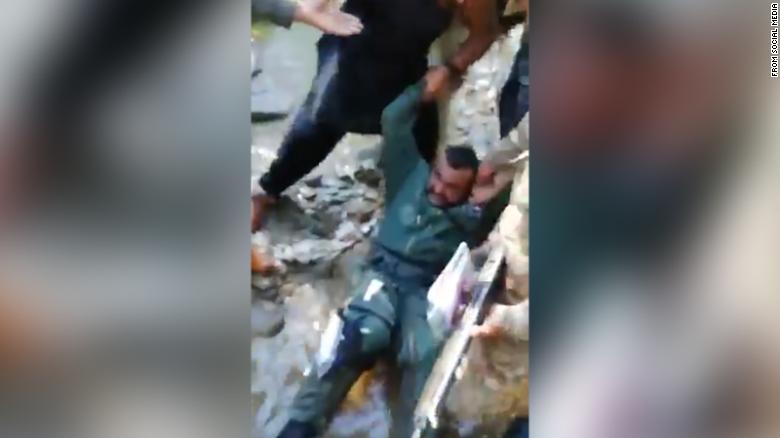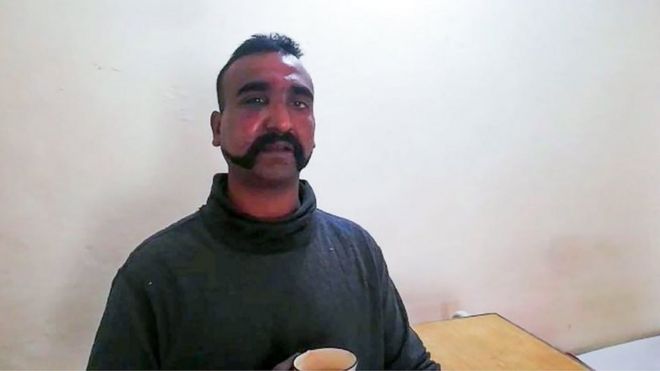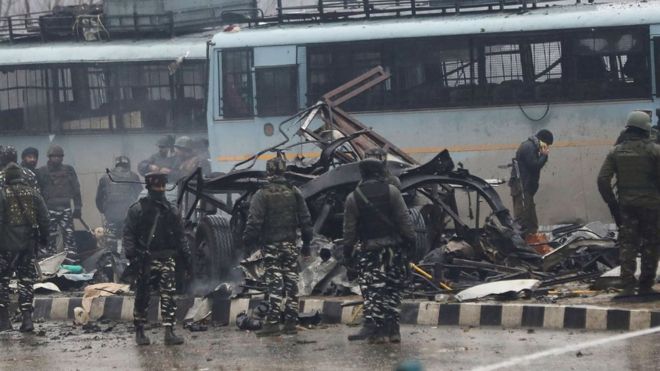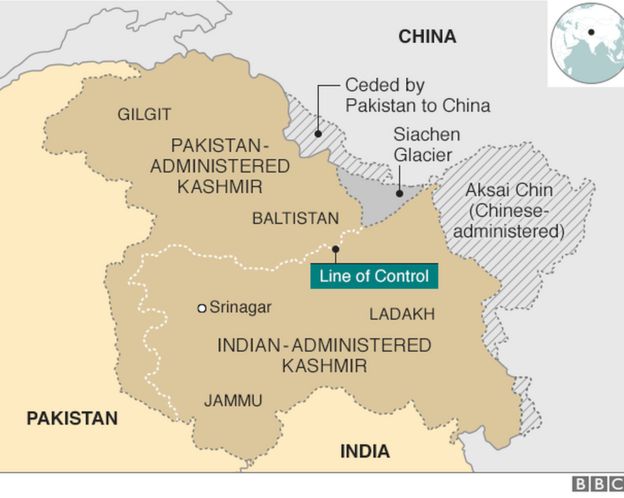Nuclear-Armed and Furiously Mutually Defensive
"The world is watching our collective will. We trust our army's capability and because of this, it is extremely necessary that nothing should happen that harms their morale or that our enemies should get a chance to raise a finger against us."
Indian Prime Minister Narendra Modi
"[Abhinandan is the] embodiment of a mentally tough, selfless & courageous soldier."
"During these testing times the country stands, as one, behind him & his family. Our efforts are on & under the #GenevaConvention we hope that the brave pilot would return home soon."
General Vijay Kumar Singh, Indian Minister of State for External Affairs

"World history tells us that there are miscalculations in wars. But my question to the Indian government is: Given the arms that we and you have, can we afford any miscalculation?"Wise and welcome words from a man now in charge of a country that has time and again agitated its population to nationalist fury over the dispute shared by both countries over the disposition of disputed Kashmir, which each claims as its own in its entirety, and which is currently separated in halves for each, amid high and volatile tensions. Pakistan has, time and again, been involved in violent Islamist attacks against both Indian Kashmir and within India itself, including a horribly deadly attack in Mumbai staged by Islamist extremists with links to the Pakistani military.
"It will neither be in my control, nor in the control of (Indian Prime Minister) Narendra Modi."
Pakistan Prime Minister Imran Khan
India, the largest democratic nation in the world, and with its current population edging toward 1.3-billion, slated to overtake China as the most populous country on the globe, is forever on guard to stave off attacks from Pakistan, its nuclear-armed neighbour. The two countries, both with nuclear stockpiles, each have a culture of highly nationalistic, agitated peoples quick to surrender to frenzied accusations against one another, but it is mostly Pakistan from which the violence emanates.
Infamously, Pakistan had allied itself with al-Qaeda, sheltering Osama bin Laden in Abbottabad until U.S. Navy SEALs dispatched him and buried him in the ocean. Pakistan arrested and imprisoned a neighbour of bin Laden's who suspected the compound next to his held the leader of al-Qaeda and his wives, and aided U.S. CIA intelligence in affirming that. The Pakistani, Shaik Afridi, a medical doctor, was accused by his government of aiding an enemy. And without Pakistan's aid the Afghan Taliban would never have been able to mount their constant attacks in Afghanistan against NATO troops.
The country distinguishes itself by its Islamist extremist roots. As it did when Pakistan-based Islamists attacked and suicide-bombed paramilitary police in Kashmir on Feburary 14 where 40 of those police died. In a reprisal attack, Indian fighter jets struck a militant group that it held responsible for the suicide bombing, destroying a hilltop training camp where Jaish-e-Mohammad jihadists appear to have been in preparation for an attack which materialized.
Pakistan sent its own jets to intercept the Indian raiding force and two of the Indian planes went down, one in Indian territory the other in Pakistani. The pilot ejected safely, was quickly surrounded by Pakistani locals who set about throwing rocks at the Indian pilot who responded with a gun to hold off his attackers. He was soon rescued by arriving Pakistani police who took him into custody as a prisoner. He was later shown by video across Pakistan on television, an infringement of the Geneva code on treatment of prisoners.
 |
| Wing Commander Abhinandan Varthaman AFP |
A Pakistani military spokesman made reference to his country's nuclear arsenal and the rhetoric escalated when he spoke of a command and control authority meeting whose purpose is to determine the use of nuclear weapons. "You all know what that means", he stated meaningfully. "We have no intention of escalation, but are fully prepared to do so if forced into that paradigm", stated Pakistani army spokesman Major General Asif Ghafoor.
 |
| The 14 February militant attack was the deadliest against Indian forces since the insurgency began Getty Images |
India is demanding the return of its pilot who though badly beaten appeared to be in good health. When questioned where his hometown was, queried about his aircraft and his mission by interrogators he remained mute. To all questions, he patiently responded "You know I can't answer that", and nor was he required to, by the Geneva conventions.
Indian police had recovered several bodies from an Indian air force helicopter that crashed in a sector controlled by India of Kashmir; six Indian airmen and a civilian on the ground had been killed. The crash had occurred near an airport on the outskirts of the main city of Srinagar. The airport was closed down along with two others for civilian flights. Pakistan closed down some of its airports as well.
Now, the question is will the situation be defused when the Indian pilot is released on Friday as promised by Pakistani authorities?

Labels: Combat, Conflict, India, Kashmir, Pakistan, Tensions

<< Home